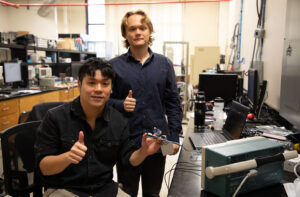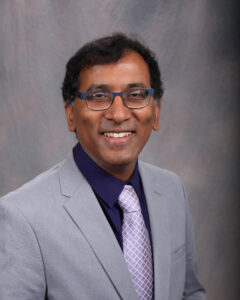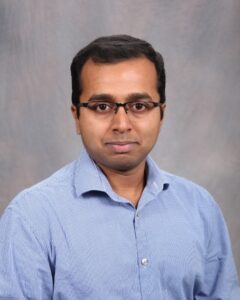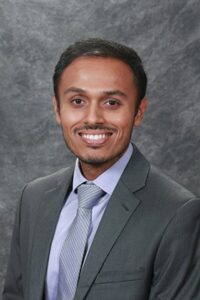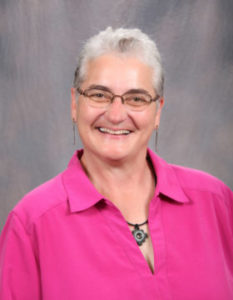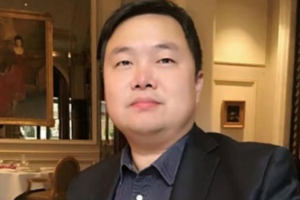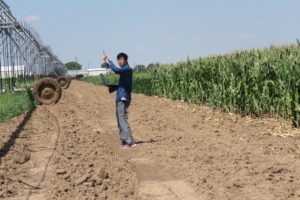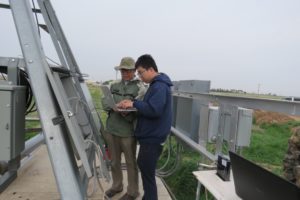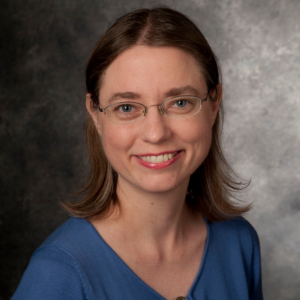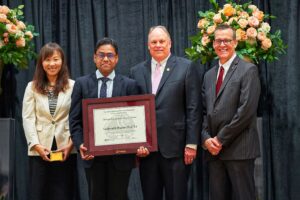 Congratulations to our May 2023 Doctoral Graduate Sambandh Dhal for The Association of Former Students Association of Former Students Distinguished Graduate Excellence in Research Doctoral Award!
Congratulations to our May 2023 Doctoral Graduate Sambandh Dhal for The Association of Former Students Association of Former Students Distinguished Graduate Excellence in Research Doctoral Award!
Mr. Dhal was nominated by several instructors for The Association of Former Students Association of Former Students Distinguished Graduate Excellence in Research Doctoral Award and after going through the strenuous eligibility requirements, he won!
Mr. Dhal as published over a dozen papers while working on his PhD with the support of his advisors Dr. Ulisses Braga-Neto and Stavros Kalafatis who are pictured below.
You can learn what some of his work involves by reading this short TAMU ECE article.
If you want to delve into more of his work, please check out his Linked in page at https://www.linkedin.com/in/sambandh-dhal9163/ .
Let me toss in two more awards while on the topic of Sambandh Dhal! ✯◡✯
Montgomery Award: (from the Graduate and Professional School)
This is for his leadership in graduate student groups with contribution to academic and professional advancements based on positive interactions with his peers. He has done work as as the finance manager in ECE GSA, organized the Hackathon, refereed many events, judged several competitions, reviewed resumes, and worked along with other groups in a career fair, the Indian Graduate Student Association, the GPSG, and more. He has made excellent use of his time and contributed a lot at A&M! Graduate & Professional School Link
Guseman Award: (from the Graduate and Professional Student Government)
The Guseman Award recognizes graduate and professional students for their outstanding contributions to the success and prosperity of the Graduate and Professional Student Government and the Graduate and Professional Student Body of the Texas A&M University.

 Thank you advisors Dr. Ulisses Braga-Neto and Stavros Kalafatis!
Thank you advisors Dr. Ulisses Braga-Neto and Stavros Kalafatis!
♪ Congrats again Sambandh!




